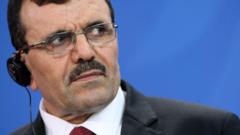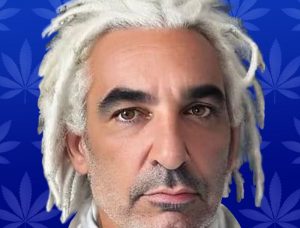Tunisia, once a beacon of democracy in the Arab world, has taken a dramatic turn towards authoritarianism as a court imposes severe sentences on prominent opposition figures. This crackdown reflects the deteriorating political landscape since President Kais Saied's unilateral power consolidation in 2021.
Tunisia's Authoritarian Slide: Heavy Sentences for Opposition Figures

Tunisia's Authoritarian Slide: Heavy Sentences for Opposition Figures
A Tunisian court has sentenced nearly 40 opposition members to up to 66 years in prison, raising concerns about the nation's increasing repression under President Kais Saied's regime.
Article text: In a grim manifestation of escalating repression in Tunisia, a court has sentenced approximately 40 prominent opposition figures to lengthy prison terms, ranging from 13 to 66 years, on charges of conspiring against state security. This latest ruling, reported by the country’s official news agency TAP, has drawn criticism from rights organizations and legal representatives who describe the prosecution as lacking credible evidence.
This sentencing comes amidst a broader narrative of Tunisia’s regression from a budding democracy to a repressive regime under President Kais Saied. Since his power grab in 2021, the president has increasingly stifled dissent and centralized control, culminating in this mass incarceration of voices opposing his rule, which includes a mix of political leaders, activists, lawyers, and journalists.
Once hailed as the birthplace of the Arab Spring, Tunisia initially experienced significant democratic strides following its 2010 uprising, including free elections, a vibrant press, and public liberties. However, a stagnating economy and the deepening of societal divisions led to growing disillusionment among many Tunisians. Saied’s promises of reform attracted support, but nearly four years into his presidency, analysts suggest that his efforts have exacerbated economic hardships.
The consequences of Saied’s authoritarian governance have been profound. The media faces severe restrictions, many independent institutions are no longer effective in their mandates, and citizens increasingly fear reprisals for voicing their dissent. Saied has leveraged his control over the judiciary, influencing decision-making in a manner that mirrors the authoritarian regimes once resisted during Tunisia's revolutionary wave.
As the nation grapples with this authoritarian tide, the implications for freedom of expression, political plurality, and individual rights hang in the balance, raising urgent questions about the future of democracy in Tunisia and the resilience of its civil society.
This sentencing comes amidst a broader narrative of Tunisia’s regression from a budding democracy to a repressive regime under President Kais Saied. Since his power grab in 2021, the president has increasingly stifled dissent and centralized control, culminating in this mass incarceration of voices opposing his rule, which includes a mix of political leaders, activists, lawyers, and journalists.
Once hailed as the birthplace of the Arab Spring, Tunisia initially experienced significant democratic strides following its 2010 uprising, including free elections, a vibrant press, and public liberties. However, a stagnating economy and the deepening of societal divisions led to growing disillusionment among many Tunisians. Saied’s promises of reform attracted support, but nearly four years into his presidency, analysts suggest that his efforts have exacerbated economic hardships.
The consequences of Saied’s authoritarian governance have been profound. The media faces severe restrictions, many independent institutions are no longer effective in their mandates, and citizens increasingly fear reprisals for voicing their dissent. Saied has leveraged his control over the judiciary, influencing decision-making in a manner that mirrors the authoritarian regimes once resisted during Tunisia's revolutionary wave.
As the nation grapples with this authoritarian tide, the implications for freedom of expression, political plurality, and individual rights hang in the balance, raising urgent questions about the future of democracy in Tunisia and the resilience of its civil society.




















